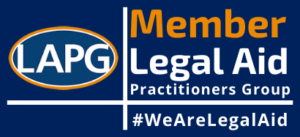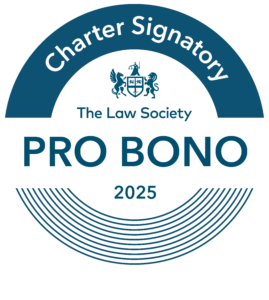Notable Cases
MW v Ministry of Justice
Jonathan helped secure a payment of damages for MW who was found to have been unlawfully detained in custody for 72 hours following a failure by the Defendant to release him over the weekend.
R (on the application of Cruz) v G4S Care and Justice Services Ltd
Jonathan successfully secured an amendment to a policy implemented by the Director of HMP Rye Hill to institute an indiscriminate and complete ban on all manga, anime and neo items despite previous iterations of the policy permitting certain items in line with security considerations. After Jonathan served a Letter Before Action proposing a Judicial Review of the policy on the grounds of illegality and breaches of Articles 10 of the European Convention on Human Rights, G4S immediately changed their policy and created a list of 87 approved titles of manga, anime and neo that could be accessed by prisoners.
AF v G4S Care & Justice Services (UK) Ltd
Jonathan secured £5000 in damages for the Claimant who was violently assaulted by a prison officer whilst resident at HMP Five Wells. The Claimant was subject to such a beating that several of the perpetrator’s colleagues resigned from their posts in protest of the treatment. The perpetrator was later charged with assault by the Crown Prosecution Service.
AS v Ministry of Justice
Jonathan secured £5000 in damages for a Muslim prisoner for repeated breaches of the Equality Act 2010 by staff at HMP Frankland who continued to subject AS to religious discrimination. Despite clear policy guidance which stated that Muslim prisoners should not be required to remove religious headwear as part of searches unless supported by intelligence, AS suffered repeated breaches over 6 months.
R (on the application of LM) v London Borough of Brent
LM was a vulnerable care leaver under the care of the London Borough of Brent. However, despite knowing of LM’s complex, undiagnosed mental and physical health needs, the London Borough of Brent made the decision to move LM out of their property, against her wishes, and without lawful care act assessments pursuant to the Care Act 2014.
After Jonathan intervened on behalf of LM, the Council agreed to undertake a Care Act assessment to assess LM’s needs. However, after Brent Council failed to complete a lawful assessment, Jonathan successfully issued a claim for Judicial Review demanding a quashing of the unlawful assessment, an immediate re-assessment, and commitment to not move LM out of their property without her needs taken into account.
On the final date the Council had to decide whether to Defend the proposal for Judicial Review, the Council conceded by consent to each of the Claimant’s demands.
R (on the application of NP) v Secretary of State for Justice
After Jonathan successfully secured the release of NP, an IPP sentenced prisoner 18 years over Tariff, the Secretary of State decided to recall NP after she visited an ill and elderly relative in hospital, despite NP having informed the Probation Service and relevant professionals of her intentions and location.
After serving a Letter Before Action on the Secretary of State for Justice alleging that their decision to recall was both unlawful and irrational failing to identify how NP’s breach of licence conditions amounted to an increase of risk in the circumstances, the Secretary of State carried out their own investigations and made the unilateral decision to release NP with immediate effect after three months of further imprisonment.
AR v Parole Board
Following Jonathan’s reconsideration representations, the Parole Board found the Parole Board’s decision to conclude our client’s case on the papers to be both unlawful and procedurally unfair. [2024] PBRA 159
AR is a life sentence prisoner who was recalled into custody in 2022. His minimum tariff expired in 2001. Due to English being AR’s third language, previous Parole directions had accepted the need for a translator and interpreter to assist AR throughout his hearing. However, after AR’s case was adjourned to seek further information, the Parole Board proceeded with a hearing without an interpreter and without clarifying AR’s understanding of the evidence or procedure he was undergoing.
After the Parole Board failed to question AR on his view of the recall, and proposed concluding on the papers, AR’s previous solicitors failed to take his instructions and accepted the Parole Board’s untested view that AR’s case should be concluded on the papers to complete further work, despite it being evident that AR was not advised of the implications of this.
The Parole Board accepted Jonathan’s representations in full and directed AR’s case for an expedited oral hearing having found the decision unlawful and procedurally unfair.











